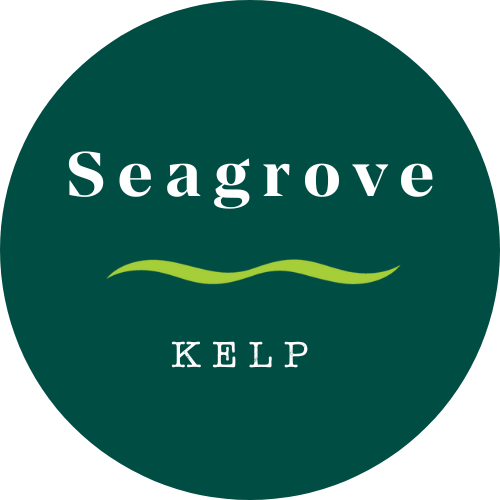Kelp is a superfood with natural sources of protein, fiber and iodine.
The quality of the seaweed protein is comparable to lean beef and whole cooked eggs based on it’s amino acid composition and digestibility. *
In general, seaweeds are a good source of vitamins such as B1, B2, B6 and B12 and exceeds that of spinach or cabbage. Seaweed is also a great source of vitamin C and Niacin.*
Due to the presence of micro nutrients, seaweeds are a superb source of essential elements. Seaweeds concentrate elements such as iron, cobalt, zinc, nickel, magnesium and iodine.
Kelp is naturally rich in iodine. Iodine concentrations vary with species, location and preparation but kelp may contain up to 1% of their dry weight in iodine. *
Barta, E.S., & Branen, A.L., & Leung, H.K. (1981) Nutritional Analysis of Puget Sound Bull Kelp. Journal of Food Science, 46, 494-496.
Seibin and Teuko Asaki. (1983). Low Calorie High Nutrition Vegetables from the Sea to Help You Look and Feel Better. Japan Pbns. Inc., Tokyo. 176 pages.
Druehl and Clarkston. (2016). Pacific Seaweeds. Harbour Publishing. 281-285.
